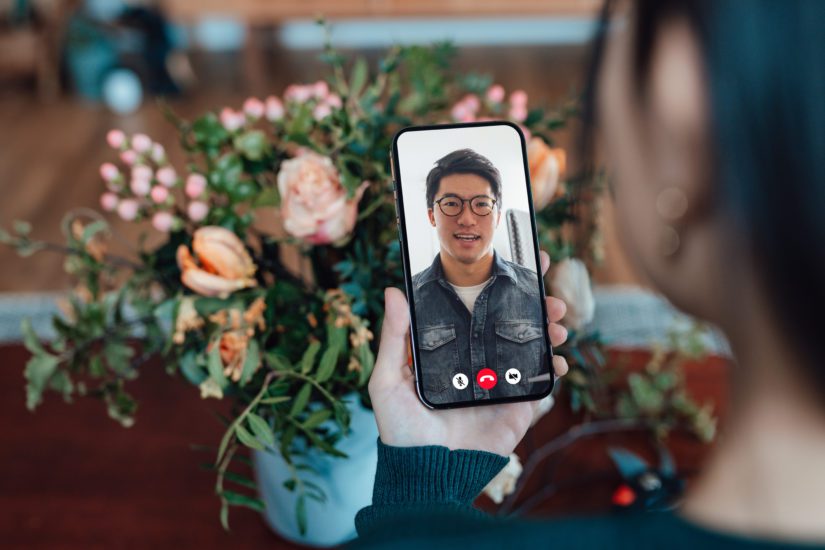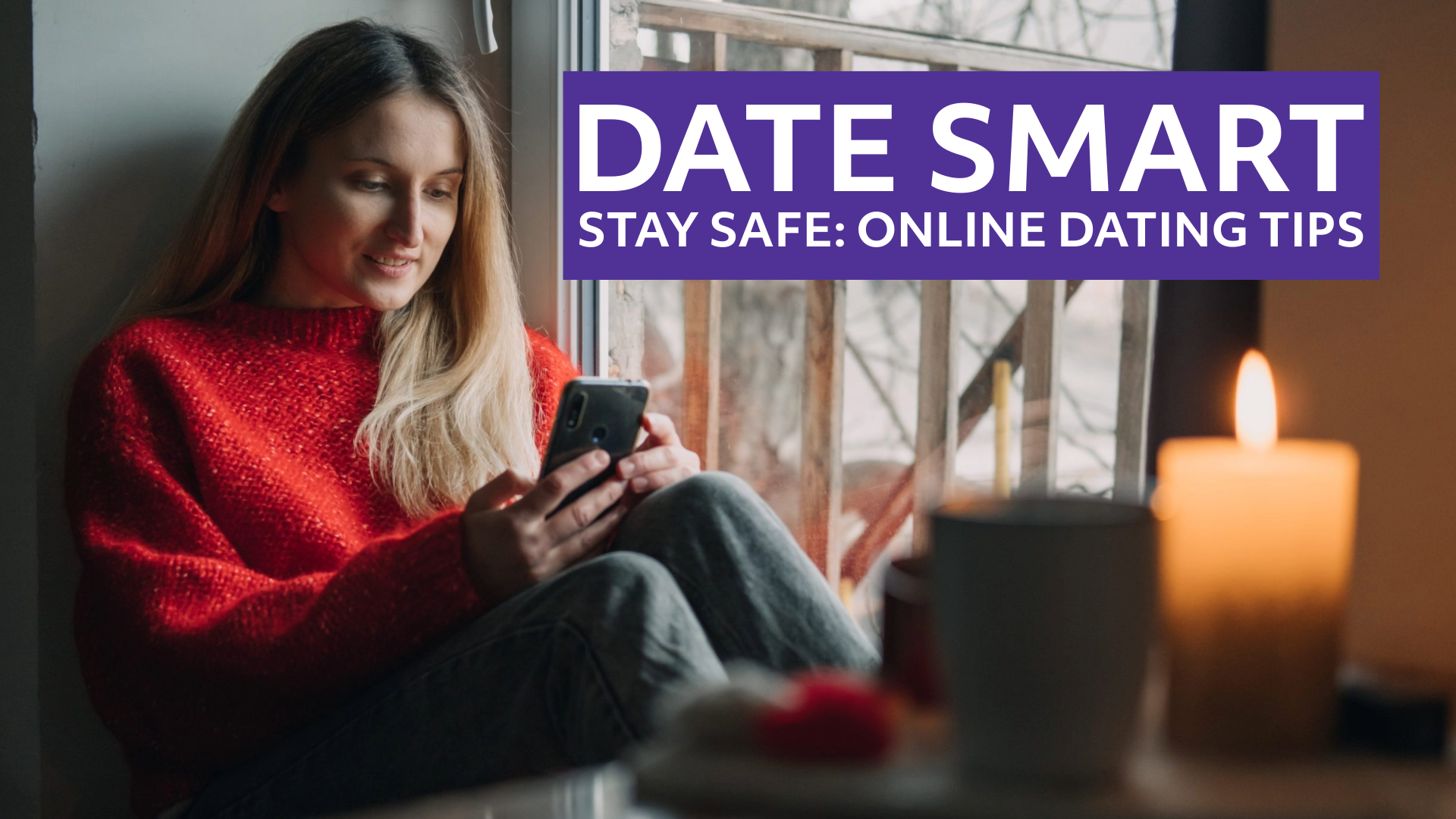Many people today turn to the internet during their search for romance. Dating sites and apps offer the exciting opportunity to meet people everywhere, from down the street to the other side of the world. But not everyone who sweeps you off your feet should be trusted. That’s why it’s crucial for you to know how to keep yourself safe while dating online. Check out these online dating safety tips so you can enjoy those butterflies in your stomach without worrying about scams, catfishing, and other issues.
1. The best online dating safety tips start with your intuition

What can you do to actively protect yourself while browsing for “the one” online? Well, start by thinking of safety measures you’d take in the real world. For instance, you might not want to give away your home address on the first date!
Always trust your gut. It’s not ideal to give your personal information away to people you’ve just met, even if they seem like the one you’ve been waiting for. And it’s easier than ever to fake identities online and catfish with so many other people’s profile pictures and info floating around.
Here are some things to watch out for while browsing online dating apps and sites:
- Financial scams
- Phishing
- Identity theft
- Catfishing
- Bots
No one wants to have their money, personal information, or identity stolen. Also, the heartbreak of realizing the person you’d caught feelings for wasn’t who you thought (or wasn’t even a person at all, but just a bot out crawling for your info) can be devastating. Save yourself the pain this Valentine’s Day by stopping a bad romance before it starts.
2. Look out for classic dating scam warning signs
Some of the most common red flags in the online dating world include:
- Asking for money—especially if they do this while “love bombing.” This whirlwind of affection is meant to lower your guard so you’re more vulnerable to attempts at soliciting your money. No matter how wonderful someone seems, don’t send them any money. Remember, they may not even be who you think they are.
- Lack of photos or refusal to video call. Always remember if you can’t get a good look at who you’re talking to, there might be more at play than it seems. The first step to protecting your own identity is knowing the other person’s. And if they refuse to connect with you over FaceTime or webcam, something sinister may be at play.
- They get pushy with messages. Not only is this rude and undesirable in a partner, but it can also indicate they’re trying to get information or money out of you without giving you time to think. This is especially concerning if they suddenly have medical emergencies, car breakdowns, or other expensive catastrophes.
- You can’t seem to learn anything about them. The whole point of dating is to get to know one another. So be cautious if your date is reluctant to tell you any details about their personal life, such as what they do for a living or what their family life is like.
- They have a blank or brand-new profile. This isn’t always a red flag. Everyone must break into the dating scene for the first time at some point, after all. But if the person you’re dating has no other social media profiles or online connections, be wary. And if they don’t even have a profile picture, personal details, or other basic info, be doubly careful.
If you’re worried about crossing paths with an online scammer, here are some online dating safety tips you can use to ensure that you’re protected.
3. Verify who you’re talking to

One of the most important online dating safety tips is to be wary of people who are so secretive they won’t tell you a single thing about their family, friends, or social life—let alone share any photos of recent events or talk to you on webcam.
Asking to chat on video a great way to set your mind at ease and confirm who you’re talking to. For most couples it will come relatively naturally after you’ve talked for a while.
If it’s been a suspiciously long time and you haven’t been able to talk with your date face-to-face, they could be hiding something. Make sure you have a high-speed internet connection while you video chat so you have the best possible chance to look out for warning signs.
4. Familiarize yourself with different sites
Not all dating apps are created equal. Some are more reputable than others. Common dating apps include Hinge, Elite Singles, Tinder, eHarmony, and bumble. But even people who are well-versed in their dating site of choice have been tricked by catfish, bots, or bumble scams. So, be smart about who you get close to! Do your homework and look up common scams to watch out for on whichever one you pick.
5. Double-check your overall online security
Whether you’re seeking a long-term match or just looking for a friend this Valentine’s Day, protecting your personal information is one of the most essential online dating safety tips. Make sure you use strong passwords, avoid posting information that could be used to fake familiarity with you, and use two-factor authentication when you can. If possible, use secure internet with encryption capabilities like WiFi 6 to make it more difficult for scammers to steal your information.
Find your perfect match with these online dating safety tips

Hopefully you’ve never been catfished or fallen victim to an online dating scam. But now that you know how to stay safe out there in the online dating world, have fun and explore! What’s your favorite dating app you’ve found to be the safest and most user-friendly?
If you or a friend are looking to make meaningful connections online, you’ll want high-speed internet to keep up with the action. And be sure to frequent our blog to learn more about how Quantum Fiber can help improve your digital life while you put our online dating safety tips into practice!
Content Disclaimer - All content is for informational purposes only, may require user’s additional research, and is provided “as is” without any warranty, condition of any kind (express or implied), or guarantee of outcome or results. Use of this content is at user’s own risk. All third-party company and product or service names referenced in this article are for identification purposes only and do not imply endorsement or affiliation with Quantum Fiber. If Quantum Fiber products and offerings are referenced in the content, they are accurate as of the date of issue. Quantum Fiber services are not available everywhere. Quantum Fiber service usually means 100% fiber-optic network to your location but, in limited circumstances, Quantum Fiber may need to deploy alternative technologies coupled with a non-fiber connection from a certain point (usually the curb) to your location in order to provide the advertised download speeds. ©2026 Q Fiber, LLC. All Rights Reserved. Quantum, Quantum Fiber and Quantum Fiber Internet are trademarks of Quantum Wireless LLC and used under license to Q Fiber, LLC.








